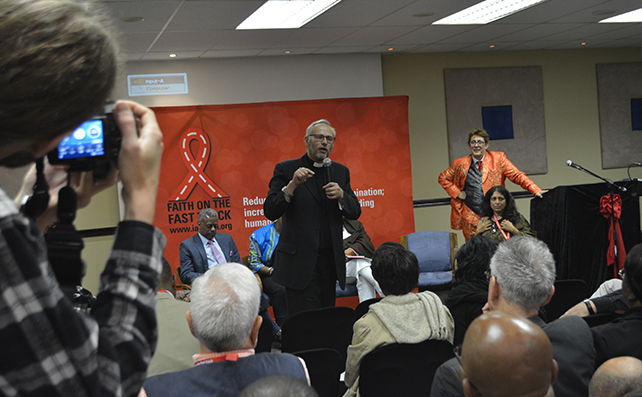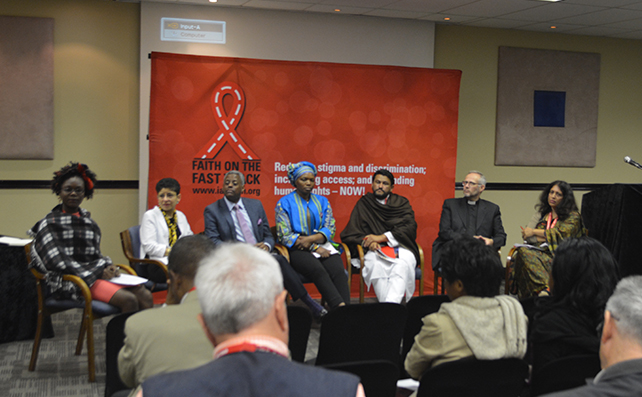Durban, SOUTH AFRICA – Engaging faith-based organizations (FBOs) in the fight against HIV continues to be challenging, with some of the successes greatly dampened by numerous gaps that are not only committed by the FBOs themselves, but also by the failed chances to tap the FBOs by other HIV-related solution providers. This was stressed during an inter-faith gathering here at the International AIDS Conference 2016, where experts agreed that an emphasis on intersectionalities should be highlighted as a means to end HIV.
On the one hand, there’s the continuing negligence of how big a role the FBOs can actually play in the fight against HIV.
According to Rev. Fr. JP Heath, policy advisor on HIV and theology of the Church of Sweden, even the international AIDS conference is not as inclusive as it ought to be with FBOs; something, he said, that is unfortunate. Specifically, aside from off-conference gatherings, FBO participation has not been mainstreamed in the biggest gathering that eyes to deal with the global issue of HIV and AIDS, immediately delimiting the voice of FBOs.
“It is good for us to speak up,” Heath said, “but it is better for us to be also heard.”
On the other hand, there remain challenges from the FBOs themselves, even if there are numerous successes (e.g. in South Africa, some FBOs were able to provide treatment, care and support to people living with HIV, even if the government hasn’t; and FBOs have been able to mobilize resources, according to Linda Mafu, head of civil society and political advocacy at the Global Fund).
However, albeit somewhat not surprisingly, “we’ve not been as affirming of sexuality – a gap that also has a lot to do with HIV prevention and provision of treatment, care and support,” said Heath, who added that this may be more pronounced in “rural areas that have less progressive policies.”
This was seconded by Imam Muhsin Hendricks, who is also the executive director of The Inner Circle. “We need to see the intersectionality with sexuality (for instance, homosexuality) and the stigma and discrimination linked with HIV and AIDS,” he said.
This is why, said Dr. Asavari Herwadkar, director of Ojus Medical Institute in Mumbai, India, “we need more dialogues with FBOs, particularly when dealing with (neglected) populations, such as children, female sex workers, and so on.”
Still other populations that FBOs continue to not widely serve include lesbian women, those in serodiscrodant relationships, injecting drug users, and trans people.
This was the same point made by Rev. Dr. Nyambura Njoroge of the World Council of Churches, who said that FBOs may have done outreach, but it lacks “inreach”.
But for Azza Karam, senior adviser for multi-lateral affairs branch of the UN Population Fund and concurrent coordinator of the UN Inter-Agency Task Force on Religion and Development, the communities that FBOs serve also need to be included. If FBO-led HIV-related efforts are broken down, she said that 25% may be initiated by the churches themselves, another 25% by the leaders of the church, “but the remaining 50% are by the people. And if we look at it through (this division), then we start (realizing) that we still have a big issue.”
Karam said that this is because the churches and their leaders can only do so much, but that the community itself should be taking an initiative. “If churches and leaders just provide (HIV-related) services, the community may not be as accepting; so the community itself can help here,” she said. “We need to have safe spaces, but we build them on our own. The communities have to encourage the churches and the leaders to (create these safe spaces), but we should not just rely on them.”
At the end of the day, Karam said, “HIV has no religion, so we should look at solving it this way.”
“Even within the faith community, we (get) fatigue,” Heath said. “We need to be reinvigorated (if we are to help deal with the HIV issue).”


































































